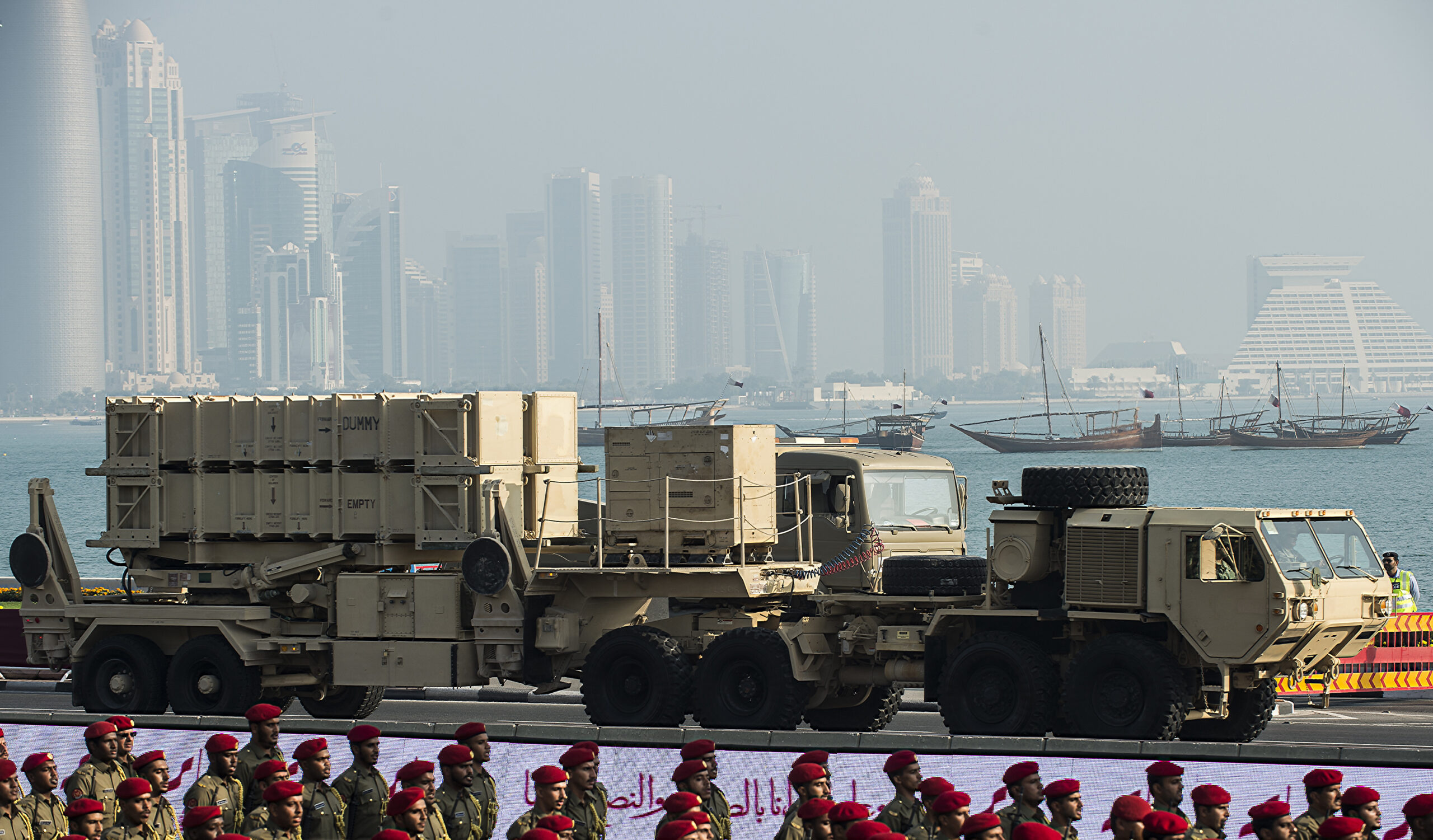June 5 marked the second anniversary of the Gulf rift. In 2017, the Saudi-led quartet (Saudi Arabia, UAE, Bahrain, and Egypt) imposed a blockade on Qatar, citing Qatar’s relations with Iran and terrorist organizations. To date, Qatar refuses to acknowledge the quartet’s 13 demands — issued in the early weeks of the rift — which include severing ties with Islamists and downgrading engagement with Iran.
Sources report that Saudi Arabia raised the Qatar-Iran connection to secure U.S. approval for the embargo, but Qatar’s association with Islamist actors serves as the “real casus belli.” Saudi Arabia’s silence on other links between Gulf Cooperation Council (GCC) member states and Iran supports this claim. Most notably, Saudi Arabia overlooked pre-rift UAE-Iran trade, which accounted for 62 percent of all Iranian imports to GCC states in 2016.
Qatar’s strategic goals
Reading the rift as backlash for Qatar’s ties with Islamists has raised questions about the state’s strategic goals. Recent reporting casts Qatar as boldly interventionist with aspirations to reshape regional order — a surprising goal for a country the size of Connecticut. Pointing to its support for the Arab Spring uprisings in 2010, Gulf observers argue that Qatar aims to challenge the legitimacy of Middle East autocrats and bring its own allies to power. The quartet echoes this charge, accusing Qatar of interfering in the internal affairs of sovereign countries by backing terrorists.
If Qatar seeks to reshape the Middle East, then it confounds expectations. Qatar’s size and limited military resources should prevent the country from punching above its weight. Still, analysts reply that Qatar breaks the small state mold. They cite the country’s unique resources to explain its offensive behavior.
Offensive opportunism…
Qatar enjoys shared ownership of the world’s largest gas field with Iran and has a largely homogenous, nonsectarian population. Qatar’s economic and domestic security and highly centralized government allow the state to react more quickly and decisively than its larger neighbors. Some scholars argue that Qatar’s ability to act without serious constraint has made the country an opportunistic power simply responding to events or crises without long-term strategic planning.
Qatar’s long standing relationship with Islamists challenges this narrative. In 1969, the Emir of Qatar granted citizenship to the Muslim Brotherhood (MB) cleric Yusuf Qaradawi, who is often described as the most prominent MB religious leader in the Gulf. Since then, the government of Qatar has elevated MB ties, even televising Qaradawi’s Friday sermons on the popular state-funded news program Al Jazeera. The Qatari monarchy continues to provide political and financial assistance to high-profile MB-affiliates.
The opportunistic explanation also fails to explain Qatar’s continued unwillingness to appease powerful neighbors. Even though Qatar’s relations with Bashar Al-Assad and Hosni Mubarak improved in the late 2000s, the state threw its weight behind Islamist revolutionary forces in Syria and Egypt in 2010. The failed attempts to establish democratic governments in these transition states left Qatar with few regional allies and several GCC enemies. After the ousting of Egypt’s MB President Mohammed Morsi in 2013, Saudi Arabia and the UAE moved to marginalize Qatar by officially withdrawing diplomatic representation in 2014.
The 2014 attempt to push Qatar away from Islamist groups failed to produce genuine realignment. Flouting the expectations of opportunism, Qatar did not adjust when its policy became a liability. The government of Qatar has maintained Islamist ties for over 40 years, refusing to change course even when threatened by its neighbors. In June 2017, Qatari Foreign Minister Mohammed bin Abdulrahman Al Thani reaffirmed official policy by defending Qatar’s financial assistance to Hamas, the well-known MB offshoot in Gaza, calling the organization “a legitimate resistance movement.”
…or defensive balancing?
When engaging states, Qatar balances to achieve strategic neutrality. Consider U.S.-Qatar relations. Qatar regards the U.S. as its most important security partner. The U.S. military presence hosted at Al Udeid Airbase and Camp As Sayliyah protects Qatar from foreign threat. Despite pressure from the US, Qatar still refuses to align against Iran. By maintaining ties with both rival powers, Qatar aims to avoid undue dependence on either.
The rift highlights that Qatar is using new balancing strategies. By creating goodwill towards Qatar among Islamists, Qatar hopes to circumvent domestic challenge and gain leverage with other states. Qatar offers valuable resources to Islamists, namely financial assistance and an international media platform (Al Jazeera). By accepting Qatar’s help, Islamist groups become stakeholders in the country’s security, preferring to support the Gulf state rather than attack its monarchy.
Qatar reaped the benefits of its friendships with Islamists in the Arab Spring. Uprisings shook the UAE, Bahrain, and Saudi Arabia, but Qatar witnessed no unrest. Even Qaradawi, who issued a fatwa authorizing revolt against Arab leaders in 2011, strategically avoided criticism of Qatar’s undemocratic government.
Qatar uses Islamist ties to punish or reward states too. Doha reportedly engaged groups such as Hamas and Hezbollah to draw them away from Iranian sponsorship, effectively countering Iranian power projection through proxies. Most recently, Qatari interlocutors helped facilitate U.S.-Taliban negotiations hosted in Doha, demonstrating that Qatar can also serve as a valuable diplomatic conduit.
Qatar has not broken the small state mold, but has redefined defensive balancing. Qatar fosters non-state ties to survive in a region saturated with well-organized and influential Islamist groups. Without change in the presence or power of Islamists in the Middle East these ties will endure and the division between Qatar and the quartet will likely remain.

